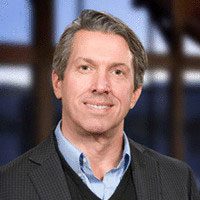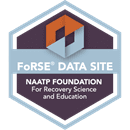The disease of alcoholism and addiction changes every element of a human being. Nearly every component of the sufferer’s mind, body, and spirit are affected. Those who suffer from this disease must begin recovering by addressing their spiritual malady, physical allergy, and mental obsession. This three-fold approach to healing is uniquely addressed by the 12-Step recovery program.
A successful effort placed in working all 12-Steps can restore and rejuvenate almost any alcoholic or addict who adheres to the program. Those who have successfully entered recovery and taken the 12-Steps will find they experience a better quality of life all around if they maintain constant contact with the 12-Steps. That is to say, most who experience what the 12-Steps can do in their lives will choose to continue taking them.
Going Further
Many who incorporate a program of recovery as a central part of their lives often become inspired to seek even more success and healing in their lives. Those who wish to get the most out of their recovery frequently choose to attend regular meetings and engage in some type of service work. While the 12-Step program heals and recovers them from the once hopeless state of body, mind, and spirit that their active disease kept them in – and once they get a taste of that freedom – many willingly choose to explore its upper limits. In other words, they want to see and experience how “free they can be.”
The excitement of having a clear mind, a calm spirit, and a healing body often encourages people to go further with their healing. Many become drawn to a holistic approach to their well-being. This holistic healing mindset can be introduced very early on in the recovery process and is a hallmark of the Jaywalker Lodge recovery program.
The principle behind such methodology is simple: a healthy body increases the chances of a healthy mind and that increases the odds of a healthy spirit. Indeed, part of the reason the 12-Steps are so effective at helping individuals recover is that they address the three-fold nature of the disease all at once. Those three parts of the human make-up are very intertwined, feeding into and off of each other. As they were sickened together, so should they be healed together. The 12-Steps encourage individuals to seek thriving, vibrant, and healing lives beyond their recovery program.
Physical Health
Becoming free from physical addiction can feel painful at first, and often the body has suffered some health issues or traumas. The initial physical health of the patient should be evaluated by medical professionals. Once they have experienced the joy of no longer being sick with alcoholism and addiction, they may find they enjoy their newfound health and want to take it further.
While exercise, healthy diet, and ceasing of unhealthy habits are not sufficient to bring about recovery on their own, they are often amazing additions to a life in recovery. Things like quitting smoking after taking a 1-year chip or setting a goal to participate in a marathon by their next sobriety birthday are commonplace in recovery communities. Such lofty goals are not always necessary, but they can do a world of good for those new in recovery and greatly benefit their healing process.
Mental Health
Regaining their mental faculties is a huge relief for most after they’ve begun the 12-Step process. It feels so good to have the constant chatter and negativity quieted after finding sobriety. For many in recovery, they find they must stay close to all of the 12-Steps in order to keep their peace and clarity of mind. Many recovering individuals will choose to enter therapy as well, to address mental health issues and work through deep emotional wounds or traumas.
Healthy habits and coping skills can be learned from the 12-Steps and outside sources simultaneously. Positive thinking, talking with a therapist, and serious meditation habits can do a lot of good. Such forms of mental health upkeep should be considered early in recovery and can lend a helping hand in the process.
Spiritual Health
The spirit can be overlooked by many entering recovery, as it is often a neglected part of life in the disease. Whatever a person’s personal belief system may be, the program of recovery includes many spiritual aspects. Your spirit – whether you define it as your “soul,” “mind,” or whatever word most speaks to you – needs healing when you arrive in the rooms of recovery. We must become acquainted with some power greater than ourselves. We must also find joy, happiness, and purpose in our life of recovery, or we are much less likely to find long-term sobriety.
Whether it is a dedication to meditation, prayer, or even something physical like communing with nature, mending the spirit is vital to our success in recovery. Spiritual health can be addressed early on in recovery, as the program itself is rooted in spiritual solutions, though many who are new in sobriety will need the gentle language of recovery to embrace this element.
Recovery is not only the journey of a lifetime but the gift of a lifetime. There awaits an all-encompassing, healing adventure that can restore and revitalize any who seek to change their lives and break away from addiction. Jaywalker Lodge uses a unique combination of programs to treat the whole problem and the whole individual, giving them the whole, healthy life they deserve. Call us now at (866) 529-9255.

As Chief Executive Officer Bill provides leadership and manage all day-to-day operations of Jaywalker Lodge, an extended care residential addiction treatment program for adult men.




